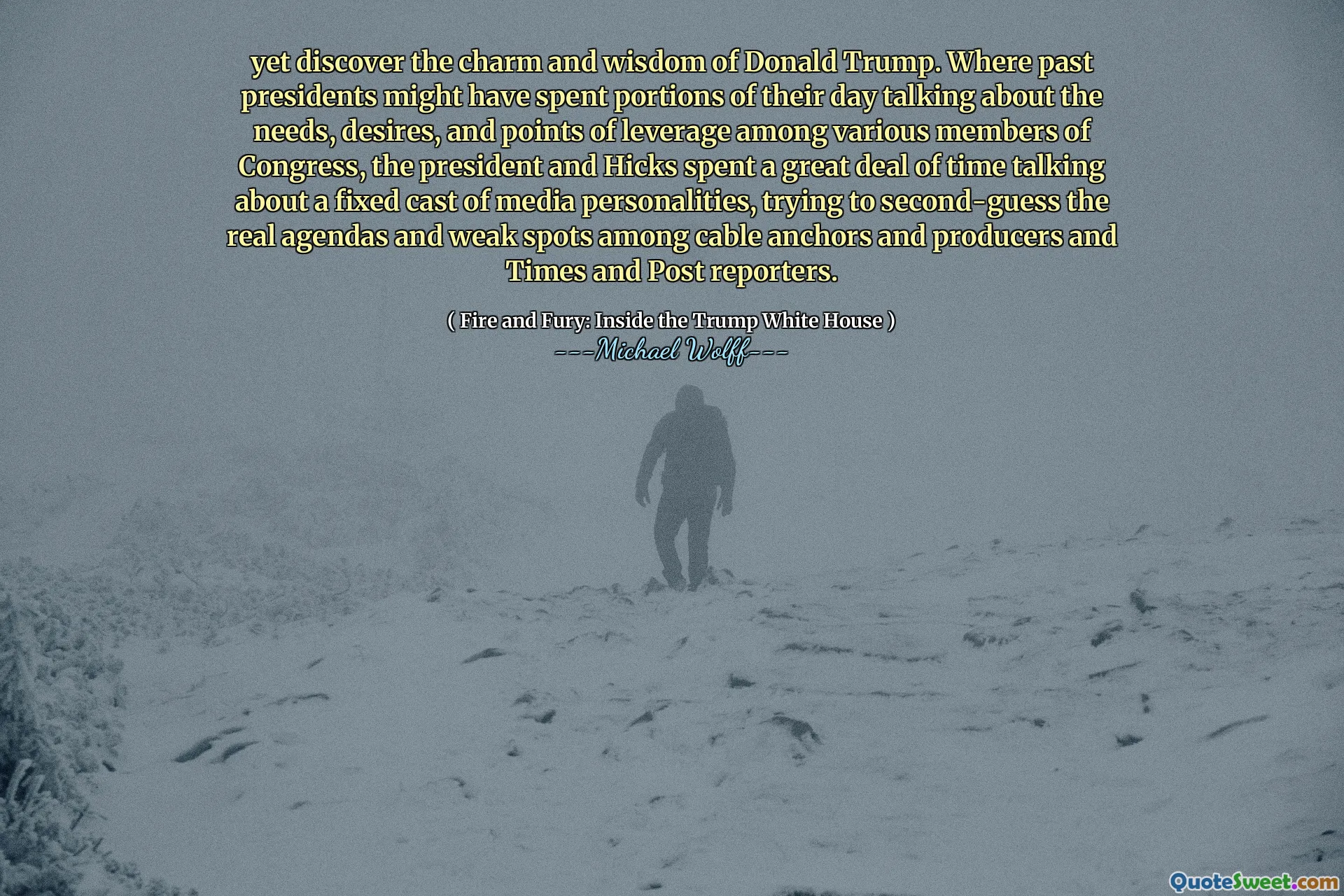
yet discover the charm and wisdom of Donald Trump. Where past presidents might have spent portions of their day talking about the needs, desires, and points of leverage among various members of Congress, the president and Hicks spent a great deal of time talking about a fixed cast of media personalities, trying to second-guess the real agendas and weak spots among cable anchors and producers and Times and Post reporters.
In "Fire and Fury: Inside the Trump White House," Michael Wolff examines Donald Trump's unique approach to leadership. Unlike previous presidents who focused on political negotiations, Trump and his ally Hope Hicks often concentrated on the media landscape, analyzing the motives and vulnerabilities of prominent journalists and cable news figures. This shift highlights a significant difference in priorities, suggesting a strategy centered on shaping public perception rather than traditional political engagement.
This perspective allows readers to appreciate the intricate dynamics of Trump's presidency, revealing his inclination to engage with media personalities instead of lawmakers. Wolff’s portrayal invites readers to view Trump's style as both a strategic maneuver and a reflection of his understanding of the media's power in politics, ultimately uncovering the complexities of his charm and wisdom in navigating these relationships.











